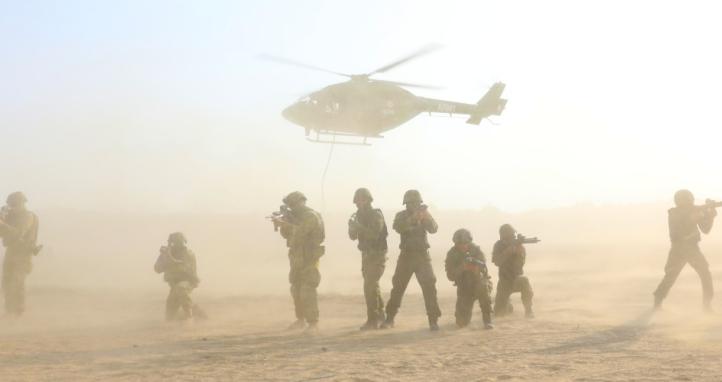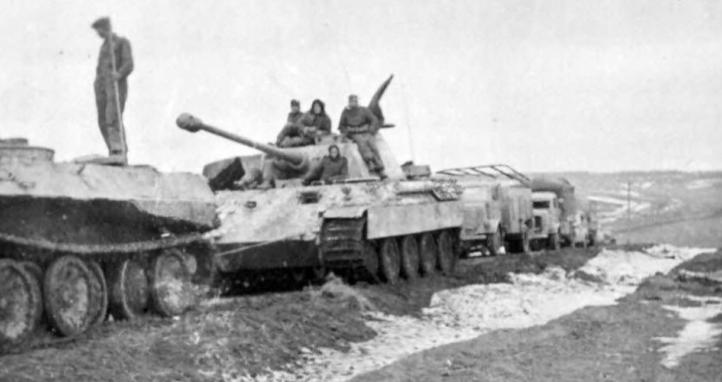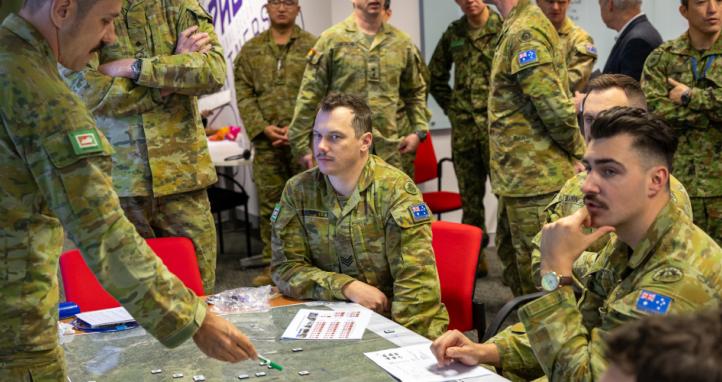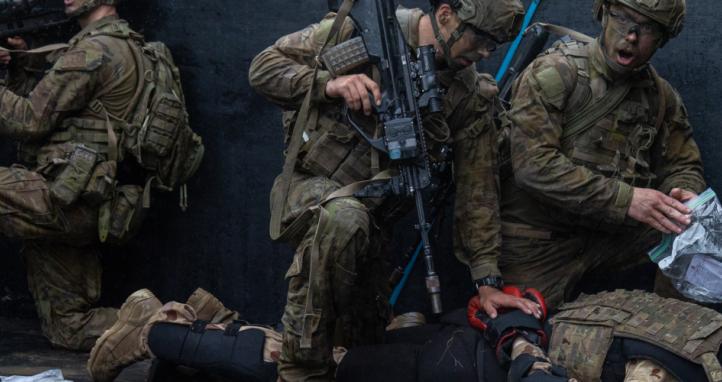This article is the third and final in a series on the employment of military police (MP) by commanders. Having addressed the employment of MP in internment, detention operations, and mobility and manoeuvre support, in this article MP support to security operations will be dissected and broken down so as to enable the incorporation of force-assigned MP into a commander’s security plan.
For the purpose of clarity, this article will divide MP security operations into three levels – strategic, operational, and tactical. Much like the levels of command, these three levels imply different end states for attached MP and the force they support. The key point to take away from this article is that MP contributions to security extend far beyond access control and traffic control points.
The effects available through timely and considered employment can reduce the overall burden of security on commanders and enable combat elements to do what they do best – take the fight to the enemy. Before progressing, however, it is important to caveat that this article will seek to avoid addressing matters addressed in the previous articles and will instead seek to provide clarity of purely security-related matters.
To first address MP force size, the following metric may be used as a guideline:
- MP company. The MP company (or close support company) typically operates in support of a brigade or formation-sized force. The MP company, with critical life support provided by the supported formation, can render security support on critical infrastructure – such as the brigade maintenance area – continuously if not otherwise tasked. It is of note that tasking above the platoon level is likely to see the MP company culminate and not have employability in internment and detention, mobility and manoeuvre support, or law enforcement until their security duties are reduced to a platoon size commitment.
- MP platoon. The MP platoon is usually assigned at the battle group level, if not operating within a close support company setting. The MP platoon at the battle group level, sustained by the integral logistics of the supported battle group, renders two sections of MP and has an unlimited operational viability period (OVP) when supported logistically. The MP platoon can provide battle group battlefield clearance team (BCT) security, if it is not being utilised for internment and detention functions.
- MP section. The MP section, outside of the close support company context, will generally support a combat team sized element. The MP section can provide security to the BCT (if not tasked with managing captured persons), support the general security combat team positions, and can render security to combat team headquarters in order to relieve fighting elements of a piquet. MP may also be employed as sentries in key areas during combat team resupply, reducing the burden on the resupplying element and on the logistics support. The MP section will require integration into the combat team rest rotation, with an OVP of 24 hours continuous tasking.
- Military police dog (MPD) team. The MPD team may be assigned at any level and renders an additional, non-lethal security effect. MPDs have a typical OVP of 2-3 hours per task, with handlers carrying 2-3 days food and water for the canine in the deployable order. The handler will typically require logistic support to store quantities of canine rations, which may be brought forward with routine resupply. It is important to maintain the rest cycle of 1:2 work/rest ratio in order to maintain canine health and effectiveness.
Strategic Security Operations
Close protection
Close protection is the personal security effect provided to senior military officials, members of the Australian Government or allied forces or select representatives of non-government organisations (NGOs) and multi-lateral international organisation such as the United Nations. Close protection’s role is to keep a principal (the subject of the protection) alive and – in so far as practical – safe, in environments ranging from benign to war-like.
Close protection is entirely linked to the safety of the principal and their effort is entirely devoted to ensuring that individual’s personal security. They cannot be re-tasked or concurrently tasked and they cannot deviate from their primary role. This variety of support ranges from individual bodyguards up to full close protection teams, depending on the individual mission. The key note for planners, if close protection teams are encountered, is to be aware that their support is entirely devoted to the protection of their principal and, if they are tied to a force for the purpose of logistic support, they cannot render a supporting effect.
Diplomatic mission protection
Expanding out from individual close protection is diplomatic mission protection. This is best described as the provision of vital asset protection effects to Australian or allied embassies, high commissions, consulates, or other diplomatic infrastructure. The security team takes precedence in the management of security for the precinct in its entirety. To this end, the provision of a quick reaction force may be required to provide reinforcement, but as a general rule, provision of combat elements of security in addition to MP is unnecessary outside of extreme threat areas. This security effect incorporates local area defence of defined diplomatic infrastructure, mobile defence of transiting diplomatic personnel, and access control to such facilities. A point of reference for such security operations is the security detachment rotations, which rendered security effects to the Australian Embassy in Baghdad during OPERATION CATALYST.
Operational Security
Theatre gateway security
Personnel who have transited through Al Minhad Air Base (AMAB) in the United Arab Emirates will almost certainly have had engagement with the MP section as they prepare to enter a theatre of operations or commence their return to Australia. Likewise, those of us blessed to have experienced a rotation of Rifle Company Butterworth (RCB) will have had extensive engagement with Army MP, Air Force Security Police, and Air Force Police on their movement through Royal Australian Air Force (RAAF) departures facilities.
This experience constitutes a key operational effect for MP – theatre gateway security. Tasked with the unenviable role of security searches of personal effects, conducting security debriefings for personnel exiting theatres of operations, and supporting the delivery of theatre security briefs to those deploying forward – theatre gateway security is a critical function of MP which can alleviate burdens on both combat elements and intelligence personnel. The incorporation of MP into the deployment from Australia into theatre is a tool of critical value to commanders, and one which when employed ensures fluidity and clarity in a typically chaotic and busy time. The security manifests typically as a dedicated section, commanded by a corporal, to manage the flow of personnel in and out of theatre. They serve in a command support capacity, as opposed to combat support, but may also be rolled into the broader security plan for any given theatre gateway. They will deploy as a standard MP section, with organic weapon systems and mobility assets.
Critical infrastructure
What is perhaps the most visible area of employment for MP is in vital asset, key point, and general critical area protection. Managing access control and local security for static or semi-permanent infrastructure is a core role filled by MP, but the scope of MP employment is often not considered as a joint matter. Whilst MP may provide security sections to assist in air or sea points of departure or embarkation (APOD / SPOD), it is critical for planners to remain aware that both RAAF security forces and naval police coxswains take primacy in the security of APODs and SPODs.
Their subject matter expertise in the nuances of airfield and port security will enable mission planners to gain a more in-depth appreciation of the infrastructure and assets they control, whilst enabling the green MP to support in other efforts and in other functions. Critical infrastructure security may be enhanced through the employment of MPD teams, which amplify the security effect and provide another non-lethal escalation option for commanders. MPD teams are best placed on active patrol duty and in the coordination of large groups of people, where rapid, non-lethal responses to potential threats take primacy. It is important to note that it is not always appropriate to employ MPDs in humanitarian missions, due to cultural sensitives and potential perception issues.
Tactical Security
Convoy security
The key area of tactical security support which may be rendered by MP is convoy security. Falling outside the remit of mobility and manoeuvre support due to its security focus, convoy security – as delivered by MP – provides (primarily) logistics convoys with an enhanced layer of security as they move through the battle space. The provision of MP convoy security also enables the integration of security and movement through MP battlefield circulation control, with MP security elements linking with MP traffic control points to facilitate smooth movement through both controlled and contested road space. The allocation of a convoy security section also may enable rapid establishment of alternate routes in accordance with circulation control plans and the laying down of temporary traffic control points by the security section in the event of primary route compromise.
Conclusion
This article has sought to provide guiding principles and methods of employment for MP in a security function. These principles are broad and are aimed at initiating discussion with the teams that planners or commanders may have assigned to them. As always, the art of the possible is best determined by engaging with the MP commander and outlining your needs, so ensure there is a seat at the table for your force-assigned provost.
Should you wish to read more on this topic, you can access LP 0.3.0 Employment of Military Police (it currently remains titled and labelled as LWD 0-1-3 Employment of Military Police) (DPN link only)









